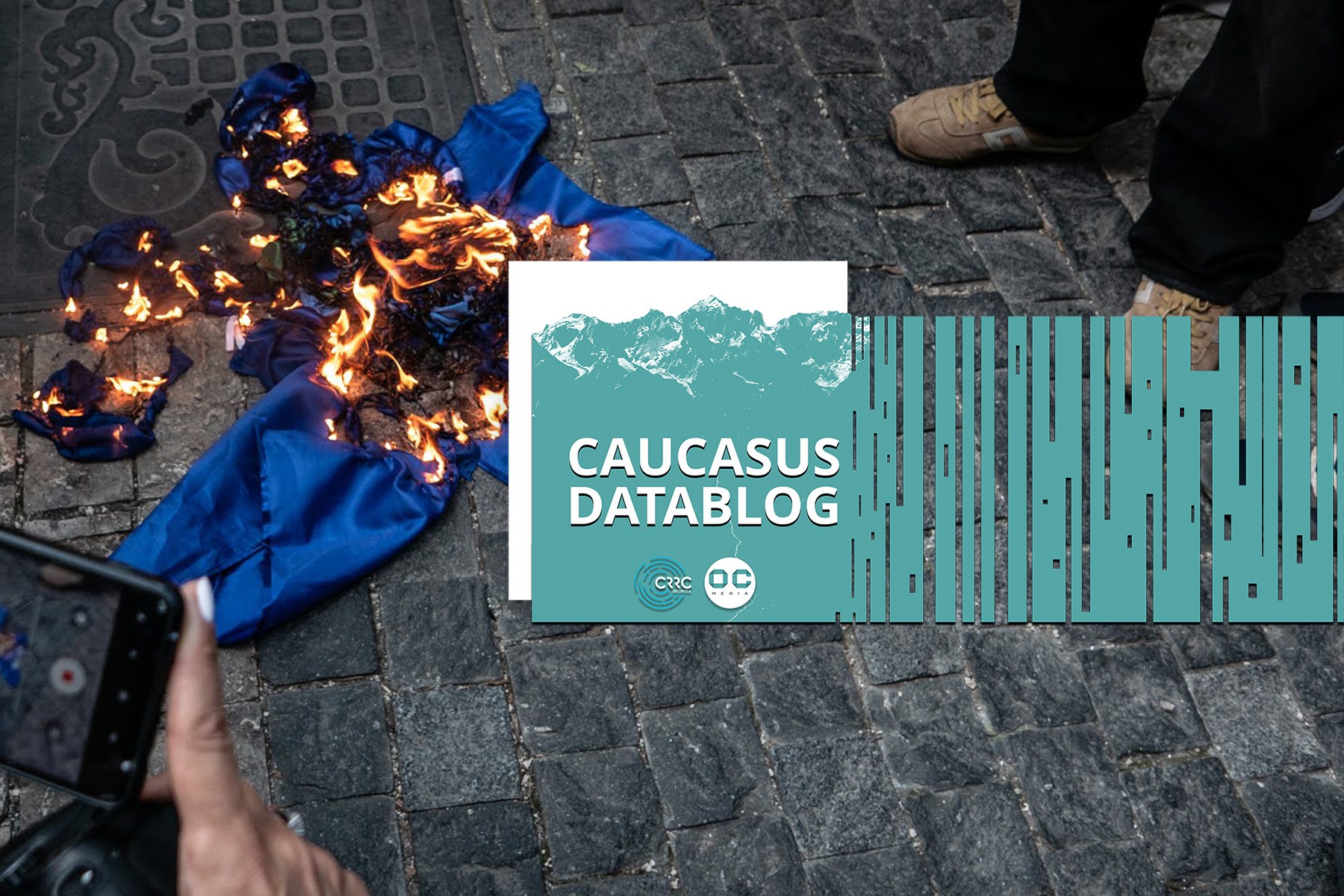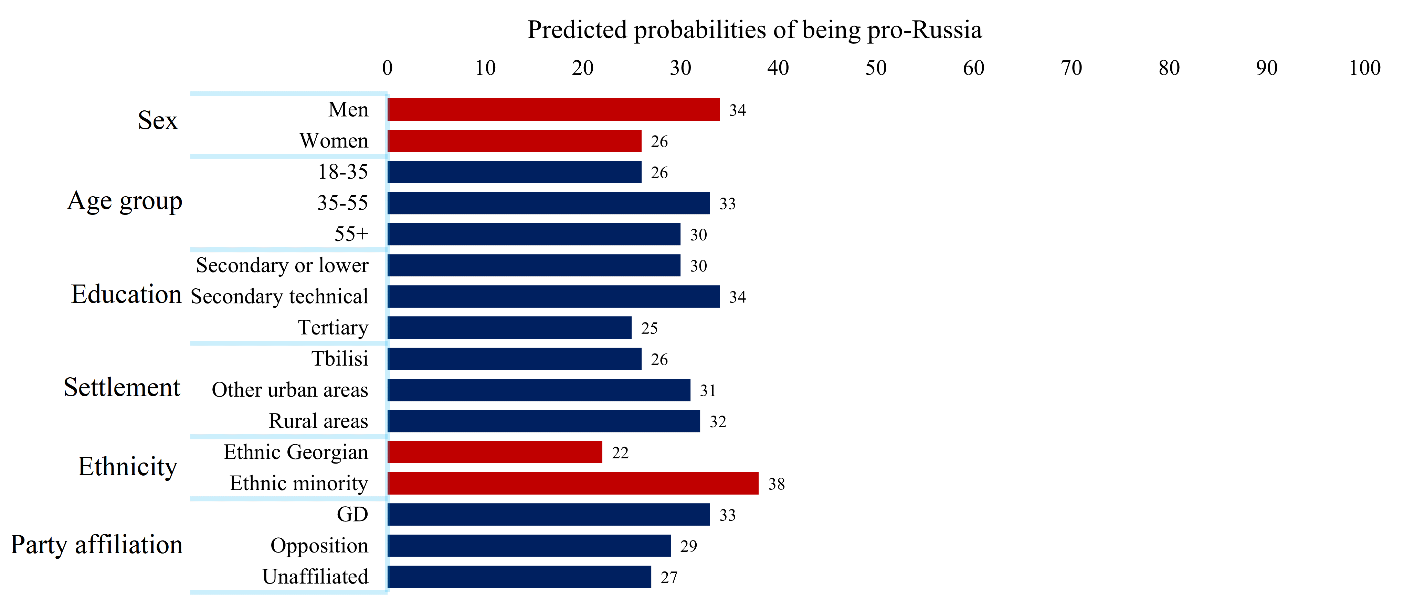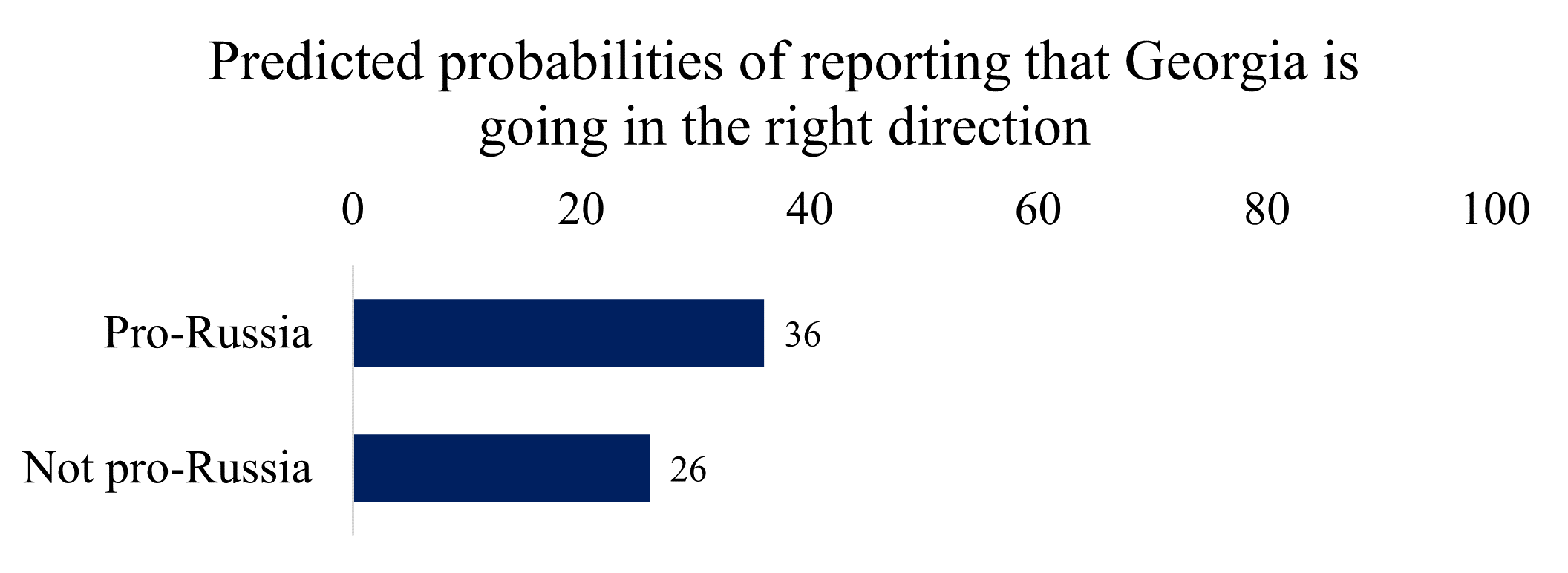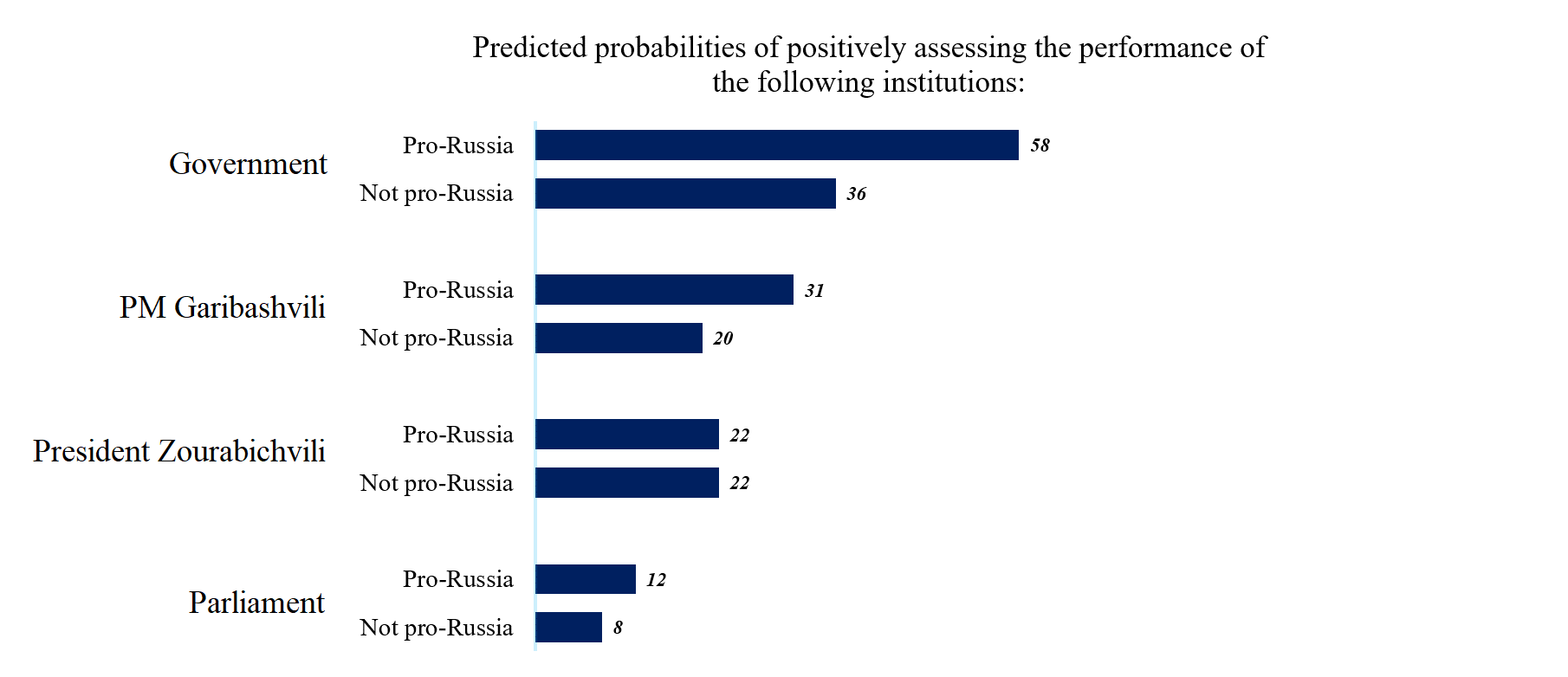
While a large majority of Georgia’s public holds pro-Western foreign policy views, a sizeable portion of the electorate is either sceptical of Georgia’s western foreign policy orientation or holds pro-Russian attitudes.
While this group is rarely examined, data from a March 2022 NDI/CRRC survey suggests that pro-Russian people in Georgia make up a fifth to a fourth of the public.
The data suggests they tend to be more satisfied with the country’s direction, and assess the performance of the government more positively than people who do not sit in the pro-Russian camp.
What portion of the public can be considered pro-Russian?
Four different questions were used to identify Georgia’s pro-Russian public. People who responded in the following manner were considered pro-Russian for the purpose of this article:
- People who report favourable or very favourable views of the Russian Government.
- People who think that Russia’s influence on Georgia has increased in the last five years and that this is a good thing.
- People who think that Georgia should have its closest economic cooperation with Russia, and at the same time, believe that Georgia should not have close economic cooperation with the EU or US.
- People who think that Georgia should have its closest political cooperation with Russia.
People who responded in the above manner to at least one of the questions made up 23% of the electorate.
Regression analysis was used to examine which social and demographic groups were more likely to sit in the pro-Russian camp. The data suggested that men and ethnic minorities were more likely to harbour pro-Russia attitudes than women and ethnic Georgians.
Otherwise, no statistically significant differences were found in terms of age, education, settlement type, or party affiliation.

What does the pro-Russian camp think of where Georgia is headed?
With regard to the general direction of the country, pro-Russian Georgians tended to think the country was headed in the right direction more often than others. All else equal, people in the pro-Russian camp were 10 percentage points more likely to report that Georgia is developing in the right direction than people who were not in the pro-Russian camp.

Pro-Russians reported similar attitudes to the rest of the public regarding parliament’s performance as well as the work of President Salome Zurabishvili
However, pro-Russian Georgians were more likely to assess the Prime Minister’s work positively as well as that of the government. They were also substantially more likely — by 22 percentage points — to view the overall performance of the government positively.

The above data suggests that more analysis should be done about the roughly one-quarter to one-fifth of the public that holds pro-Russian views — views more often held by men and ethnic minorities.
Georgia’s pro-Russian camp were more satisfied with the performance of the executive branch of the government as well as the country’s general direction than people who are not pro-Russian.
Amid increasing concerns regarding recent steps by Georgia’s political leadership, the deteriorating media environment, and the country’s European path more generally, the pro-Russian segment of society being satisfied with the current direction of the country is telling, and a warning sign for those who advocate for Georgia’s democratisation and integration with Euro-Atlantic structures.
Note: The above data analysis is based on logistic regression models which included the following variables: age group (18-34, 35-54, 55+), sex (male or female), education (completed secondary/lower or incomplete higher education/higher), settlement type (capital, urban, rural), wealth (an additive index of ownership of 10 different items, a proxy variable), ethnicity (ethnic Georgian or ethnic minority), partisanship (Georgia Dream, opposition, no party/DK), and holding pro-Russia attitudes (pro-Russian, not pro-Russian). The data used in this analysis is available here.
The views expressed in this article are the author’s alone and do not represent the views of CRRC Georgia or any related entity.








